The Syrian knot will be the key factor determining the situation in the Middle East in the coming years. The future of the Middle East largely depends on the US policy calculations, so Washington needs to have a new approach, eliminating its ego for the common good.
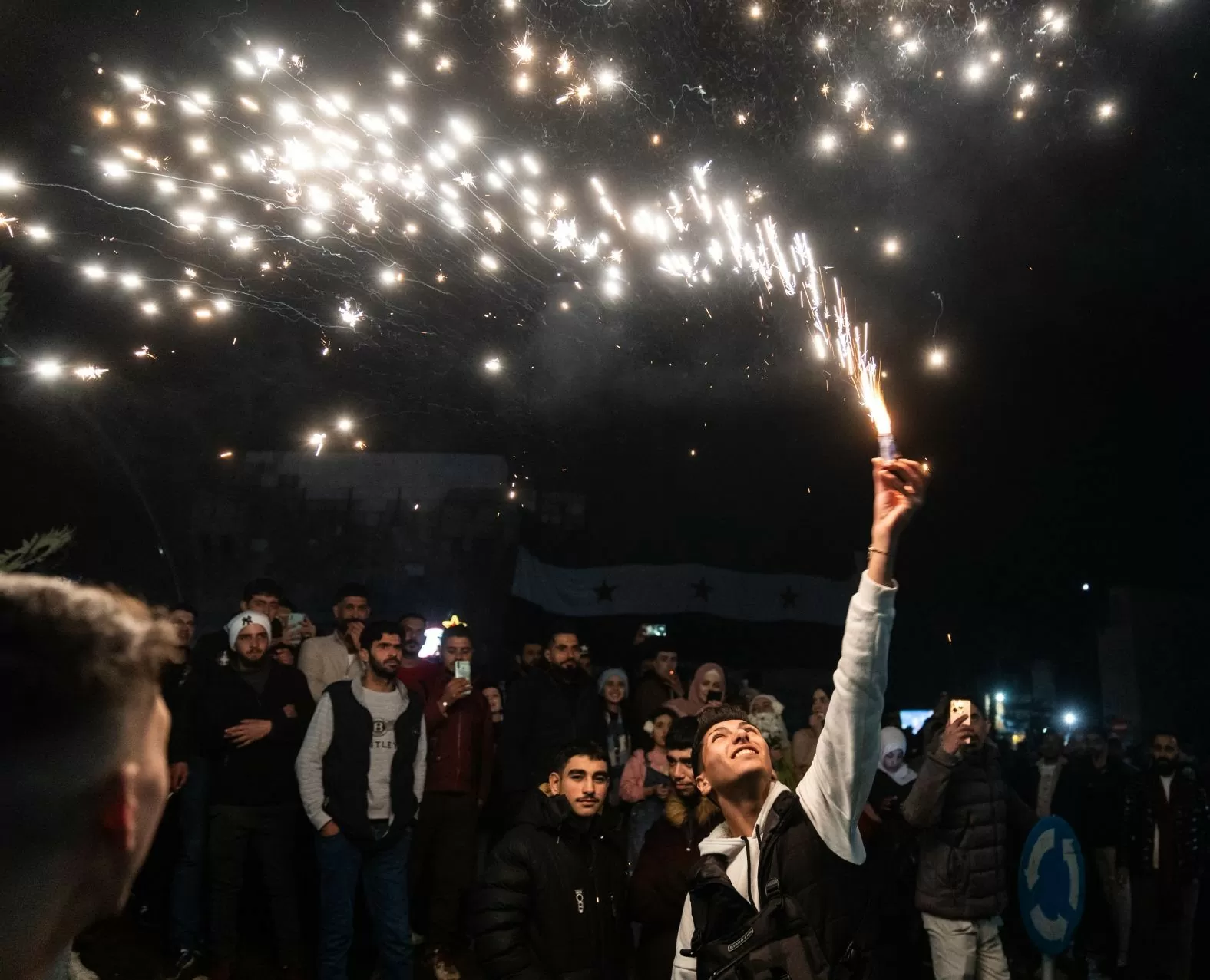 |
| Syrians celebrate the New Year in Damascus, Syria. The situation in Syria will determine the future of the Middle East. (Photo: Getty Images) |
The most dangerous era in contemporary history
The Middle East is at a critical juncture, potentially facing one of the most dangerous eras in its contemporary history.
Due to centuries-long conflicts, there is no denying that the collapse of former Syrian President Bashar al-Assad's regime and Iran's waning influence have significantly altered the region's balance of power, creating both opportunities and challenges.
These changing dynamics are further exacerbated by the presence of external powers, each with its own strategic interests.
While major powers are trying to view the armed groups that now rule Syria in a more positive light, skepticism remains widespread, largely due to the armed groups' deep history of extremism, especially their opposition to Western democracy.
Therefore, this stereotypical perception of the current situation in the Middle East can lead to some dangerous scenarios that could shape the Middle East region in the near future.
Total or divided civil war
Script The first is that Syria would descend into a full-blown civil war – one of the most brutal the Middle East could ever experience.
This scenario is especially likely given the presence of armed groups with competing interests within Syrian territory itself.
In addition, Syria is home to many minority groups, including Shiites, Alawites and Druze, of which the Druze in Suwayda make up a significant portion of the Syrian population and are known for their opposition to the armed factions currently ruling Syria.
Such a scenario seems highly likely, especially given the involvement of Iran, which is attempting to rebuild its influence following the loss of regional leadership and the significant setbacks suffered by Hezbollah in Lebanon, as well as the decline of its power across the region.
Iran may seek to restore its prestige in the Middle East by leveraging its influence in Syria, particularly by supporting minorities in the country.
The second scenario involves focusing on the conflicting interests of regional powers in Syria, particularly Russia's military presence and Turkey's influence on Syrian decision-making through its leadership of armed factions.
In addition, the interests of other key players must also be taken into account, such as Israel, which has penetrated deep into Syrian territory in an effort to secure a long-term foothold against potential security threats posed by armed factions.
The United States, which also plays a major role in the Middle East, is focusing its efforts on limiting Iran’s influence in the region. As a result, four countries – Russia, Türkiye, Israel and the United States – with competing and divergent interests are actively shaping Syria’s future, both in the short and long term.
If the interests of these countries conflict, Syria risks fragmentation and instability, posing a significant threat not only to the region but also to global stability.
The situation has been aggravated by the stance taken by some Arab countries that see the armed factions currently leading Syria as a direct threat.
These countries also maintain various interests and relationships – both diplomatic and military – with the four countries involved in Syria mentioned above.
Therefore, this conflict of interest scenario could materialize if one of the parties involved seeks to maximize its own interests or renege on commitments made to the others, thereby further escalating tensions.
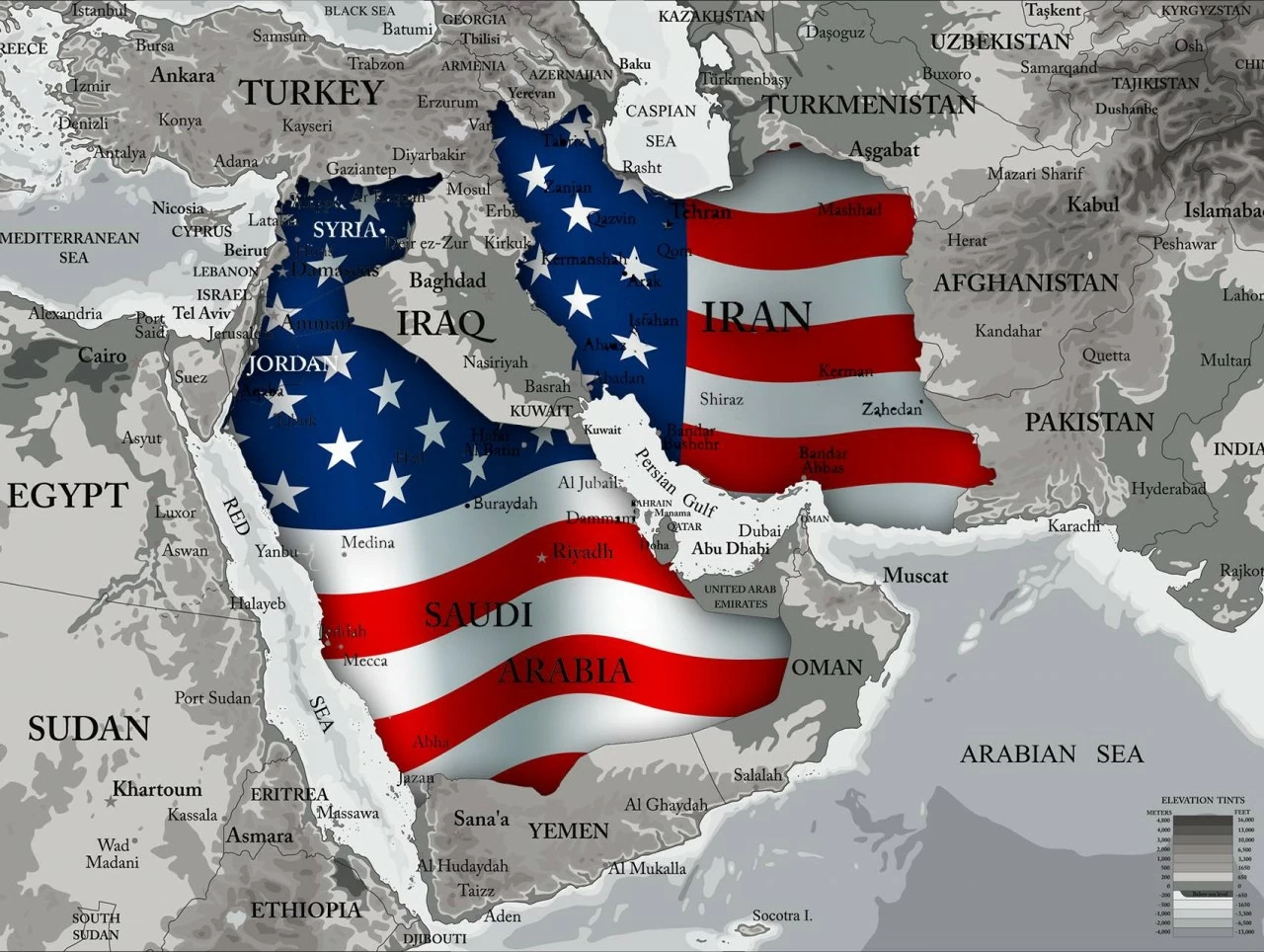 |
| The US needs a new approach to its policy in the Middle East. (Source: Hoover Institution) |
Need something new in America
The final scenario could see the new Syrian leader, Hayat Tahrir al-Sham (HTS) leader Ahmed Al-Sharaa, actively oppose Turkish President Tayip Erdogan’s policy in Syria. This could become a reality if Turkey’s interests clash with those of the United States, especially regarding the Kurdish issue.
President Erdogan remains concerned about Kurdish expansion into the region, a concern that is especially pressing given the growing pressure from Türkiye that has fueled Kurdish aspirations for autonomy for decades.
If this scenario comes true, the future of the Syrian people may become bleaker, as the new government in Syria will continue its policy of consolidating power and tightly controlling the people.
Thus, the future of the Middle East is facing a profound transformation. Syria is no longer a unified state with a sustainable strategic future, and it is unlikely to return to its former state, even if global powers withdraw their competing interests from the region.
The Middle East remains a highly volatile hotbed of conflict that could spill over into other regions. In this context, it is important for the United States and its allies to develop carefully considered, long-term strategies to reshape Syria and establish stable political leadership with a clear vision for the future.
Preventing extremist Islamist groups from gaining power is essential – not only to prevent the rise of regimes rooted in radical ideologies but also to reduce the risk of ethnic and religious tensions.
The United States must adopt a new, proactive foreign policy approach to the Middle East, one that moves beyond the mistakes of the past. Without such a change, the risk of a global conflict, possibly fueled by violent extremist groups, will be too great.
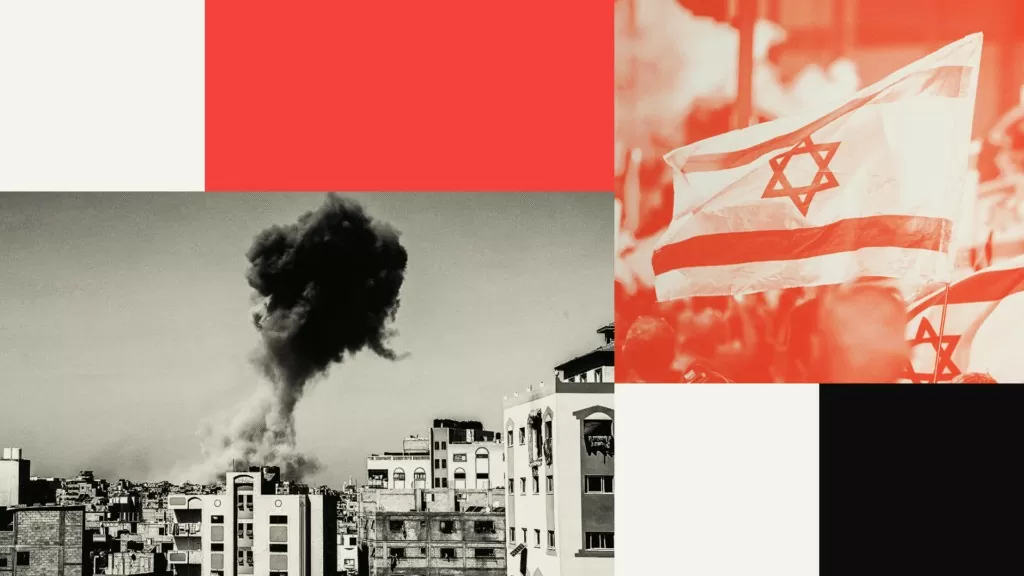 |
| The balance of power in the Middle East will shift in the coming time.. (Source: The Economist) |
The intersection has an important position.
If the war in the Gaza Strip is the worst manifestation of a seemingly intractable dispute between Israel and the Palestinians, which includes the Lebanese militant group Hezbollah, analysts call the conflict for influence in Syria a much more important struggle to dominate a crossroads that affects the entire Middle East.
“Syria is a barometer of how regional dynamics and power are changing,” said Dr. Mona Yacoubian, director of the Middle East and North Africa Center at the United States Institute of Peace in Washington. “And right now, Syria is in a state of chaos in a region that is already on fire.”
There are many countries and political forces that want to maintain or increasingly establish greater influence in Syria. Russia and Iran have previously supported the Assad regime. Russia granted asylum to the former Syrian president, while Iran has military advisers on the ground.
Current diplomatic efforts by the US and the West, in addition to reducing or eliminating Russian and Iranian influence in Syria, are also aimed at protecting their interests in the Middle East as a whole. Another country, Israel, shares a border with Syria and sees it as an important conduit for supplying men and weapons to southern Lebanon, where Hezbollah has been fighting cross-border with Israel for years.
Turkey, which backs HTS and several groups in the rebel alliance that toppled Mr. Assad, has long considered the Kurdish armed forces in northeastern Syria to be a terrorist group.
At the center of this complex political landscape, HTS has a huge task ahead of it. It will need international support and funding to rebuild the country, facilitate the formation of a new, representative government, and resettle millions of refugees.
Therefore, according to Mr. Julien Barnes-Dacey, Director of the Middle East and North Africa Program at the European Council on Foreign Relations, “the West is quickly coming to the conclusion that it must cooperate with HTS despite its terrorist status,” if it does not want to helplessly watch the chessboard at the Middle East crossroads turn without being able to get involved.
Source: https://baoquocte.vn/van-bai-syria-va-tuong-lai-trung-dong-mot-chiec-la-roi-co-the-thay-doi-ca-dong-song-my-phai-lam-gi-300046.html



![[Photo] Discover unique experiences at the first World Cultural Festival](https://vphoto.vietnam.vn/thumb/1200x675/vietnam/resource/IMAGE/2025/10/11/1760198064937_le-hoi-van-hoa-4199-3623-jpg.webp)

![[Photo] Opening of the World Cultural Festival in Hanoi](https://vphoto.vietnam.vn/thumb/1200x675/vietnam/resource/IMAGE/2025/10/10/1760113426728_ndo_br_lehoi-khaimac-jpg.webp)

![[Photo] General Secretary attends the parade to celebrate the 80th anniversary of the founding of the Korean Workers' Party](https://vphoto.vietnam.vn/thumb/1200x675/vietnam/resource/IMAGE/2025/10/11/1760150039564_vna-potal-tong-bi-thu-du-le-duyet-binh-ky-niem-80-nam-thanh-lap-dang-lao-dong-trieu-tien-8331994-jpg.webp)
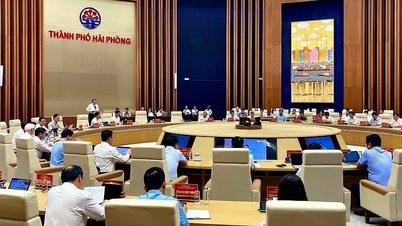



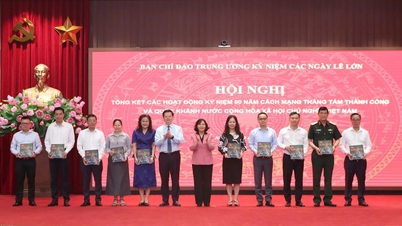








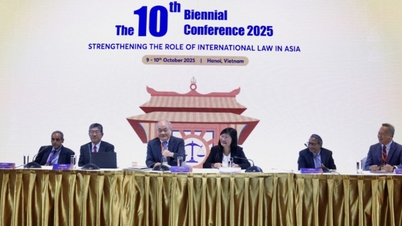


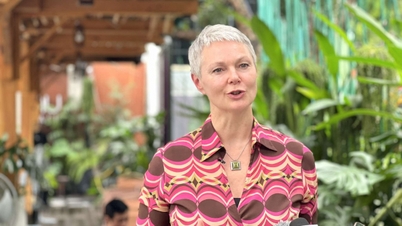
![[Photo] Ho Chi Minh City is brilliant with flags and flowers on the eve of the 1st Party Congress, term 2025-2030](https://vphoto.vietnam.vn/thumb/1200x675/vietnam/resource/IMAGE/2025/10/10/1760102923219_ndo_br_thiet-ke-chua-co-ten-43-png.webp)

































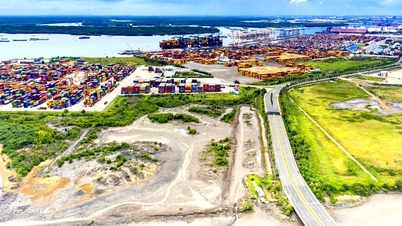
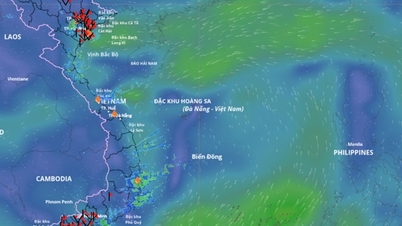


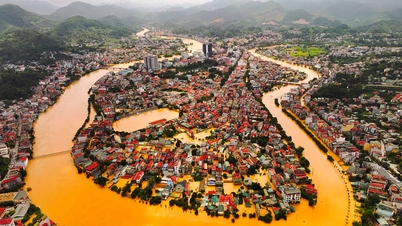

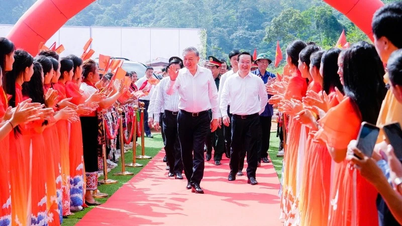




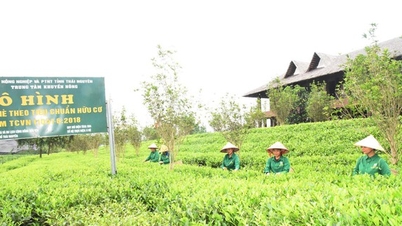

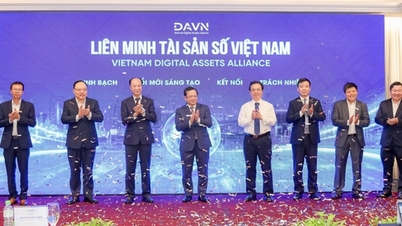
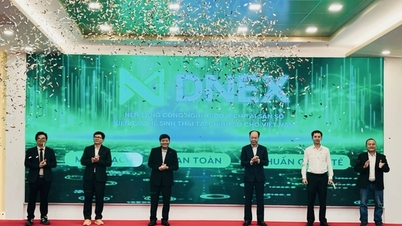





















Comment (0)